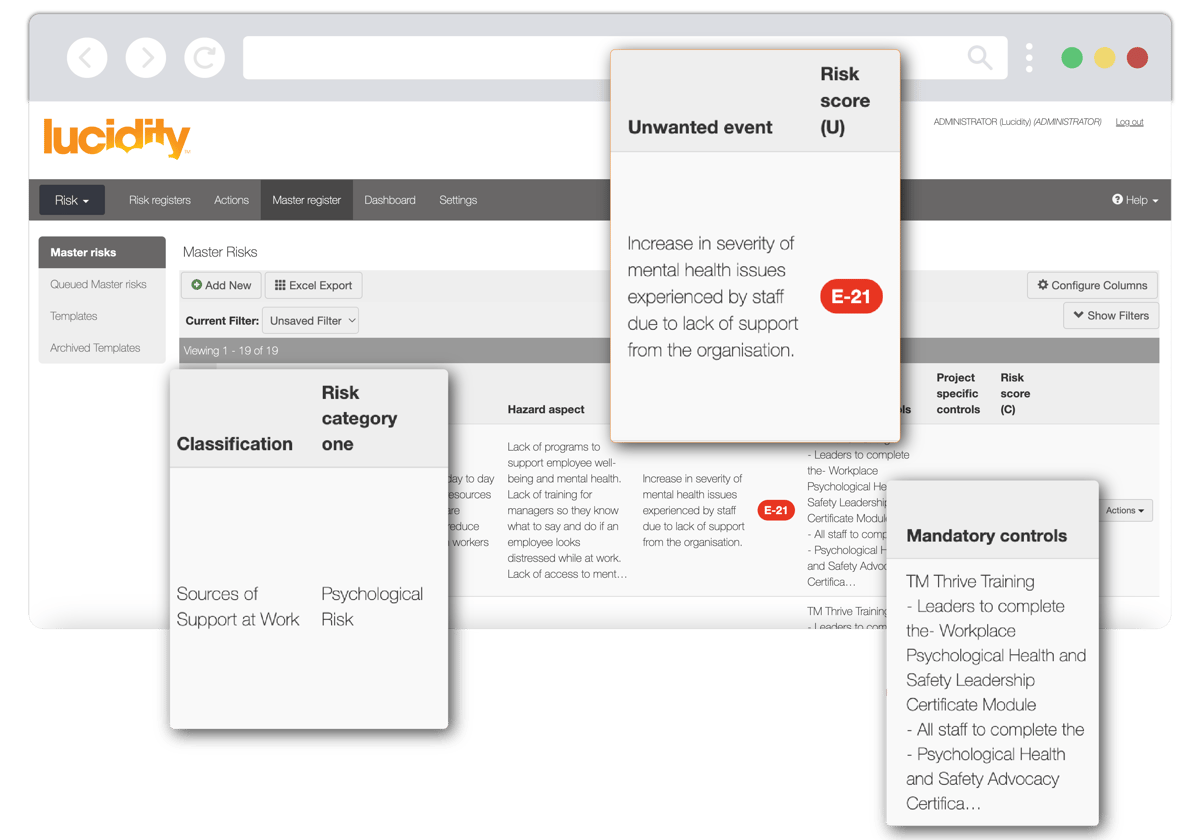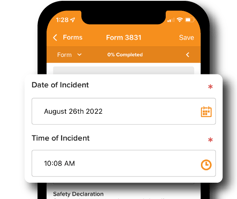Workplace psychological health and safety is a hot topic for businesses, and many are exploring how to address it. Australia is leading the way in updating workplace health and safety regulations to require organisations to put in place systems and processes to manage psychological health and safety. For the first time, the work health and safety regulations 2011 detail how duty holders must identify and control psychosocial hazards and risks. And under WHS laws, PCBUs must eliminate or minimise psychosocial risks as reasonably practicable (Safe Work Australia). It's important to note that each state and territory has their own WHS law that is legislated and regulated by the individual jurisdictions, so it's essential to check the specific regulations that apply to your business.
As with all new regulations, there can be some confusion as to what actually needs to be done and how new processes should be managed.
To begin, let’s look at what psychosocial hazards are. The model code of practice identifies 14 risk factors.
- Traumatic events or materials
- Bullying
- Harassment including sexual
- Remote or isolated work
- Poor physical environment
- Violence and aggression
- Conflict or poor workplace relationships or interactions
- Job demands
- Low job control
- Poor support
- Lack of role clarity
- Poorly managed organisational change
- Inadequate reward and recognition
- Poor organisational justice
For more information on each, check out the comcare page, which provides more details.
Businesses can manage psychosocial hazards by applying the traditional risk management process usually used for physical risk. Just like physical risks and hazards, you can use Lucidity to track psychosocial risks and hazards.
There are four main stages to get started:
1. Identification of Risk
You will need to identify any psychosocial hazards relevant to your business. These can be identified through a diagnostic tool (specific psychological risk surveys, HR employment engagement tools) or a safety consultant.
Lucidity has partnered with AP Psychology & Consulting Services, which has developed a workplace health and safety index (WPSI). This evidence-based survey is a diagnostic tool that generates a psychological risk profile for businesses and has been built specifically around the 14 psychosocial hazards listed above.
2. Assess your business's specific psychosocial risks
Once you have identified the psychosocial hazards, you follow the same steps as you would normally when adding specific risks associated with hazards to your master risk register in Lucidity. Including any activities identified in the risk identification process, the resulting unwanted events, hazard aspects, mandatory and recommended controls, and calculate the uncontrolled and controlled risk scores based on the likelihood of the risk occurring and the consequences if it does.

3. Control the risks
Once all risks and uncontrolled scores are identified and added to the risk register, you now need to implement some controls for these risks. For example, one common control could be training. AP Psychology has a purpose-built training platform, TM Thrive, which provides training and learning to help reduce psychological risks in the workplace and build workplace leaders and team capabilities.

Employees can quickly and easily report hazards confidentially via the Lucidity mobile app.
4. Review and continuous improvement
Should any new hazards be identified, adding them to the risk register ASAP is crucial. With all processes, it's essential to analyse and review them regularly, ensuring continuous improvement and safe workplaces.
If you would like any more information or assistance on how your business can use Lucidity, please speak to your dedicated account manager or contact us at contact@lucidity.io.
Lucidity
To use Lucidity to manage psychosocial risks & hazards, the following modules are required:
- Access and HR
- Incident
- Risk
- Intranet
- Induction (if you add training material as a control method)
- Competency
AP Psychology & Consulting Services
AP Psychology & Consulting Services is a leading Australian psychology & consulting firm that develops and delivers strategic solutions to promote and embed workplace psychological health and safety in the workplace. With over 13 years of experience, they provide expert guidance on managing psychological risk and identify the important requirements based on the global ISO 45003 guidelines and work health safety legislation – Psychological health and safety at work.
TM Thrive
AP Psychology & Consulting Services' training platform TM Thrive is a targeted solution that aims to empower leaders and their teams to take a systemic approach to embed workplace psychological health and safety.





